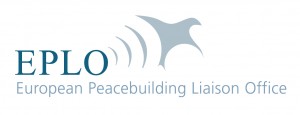Climate Crisis and Peacebuilding
The main objective of EPLO’s Climate Crisis and Peacebuilding Working Group is to ensure that the EU adequately addresses the linkages between the climate crisis, peace and conflict in its peacebuilding and climate crisis mitigation/adaptation policies and practices.
This includes ensuring that EU policies and practices relating to the climate crisis are conflict-sensitive and adequately incorporate conflict prevention and peacebuilding, and promoting and monitoring climate sensitivity in EU peacebuilding efforts.
For more information about the Working Group, please contact Marie Lena Groenewald.
Recent Activities
- In July 2024, EPLO organised a CSDN Geographic Meeting entitled ‘The Green Transition and Peace: Exploring Climate Crisis and Security Dynamics in Somalia‘. The meeting report is available here.
- In March 2024, EPLO organised a CSDN Policy Meeting entitled ‘The Green Transition and Peace: Good Practices and Opportunities for Sustainable Outcomes‘. The background paper for the meeting, entitled ‘The Green Transition and Peace: Existing Initiatives and Experiences’ and authored by Svenja Wolter, Harriet Mackaill-Hill and George Grayson (International Alert), is available here, and the meeting report is available here.
- In October 2022, EPLO organised a CSDN Policy Meeting entitled ‘Water, Peace and Conflict: Exchanging on Opportunities and Best Practices‘, and conducted interviews with seven civil society experts who participated in the discussions. The interviews (and the report from the meeting) are available here.
- In October 2022, EPLO organised a panel discussion entitled ‘Building peace and protecting the environment: Supporting the roles of civil society‘ as part of the Berlin Climate and Security Conference 2022. The recording from the event is available here.
- In May 2022, EPLO organised a panel discussion entitled ‘The European Union, climate change and conflict: conflict sensitivity as an entry point for integrated engagements‘ as part of the Stockholm Forum on Peace and Development 2022. The recording from the event is available here.
- In September 2021, EPLO organised a panel discussion entitled ‘Peace Processes and Climate Change: How Should the EU and Civil Society Co-operate?‘ as part of the Berlin Climate and Security Conference 2021. The recording from the event is available here.
- In May – December 2020, EPLO organised two series of online workshops on integrating peacebuilding and climate adaptation efforts. The workshops were organised together with adelphi and the Climate Diplomacy initiative, with support from the German Federal Foreign Office.
The policy brief for the two series is available here, and the report is available here.
The second series was entitled ‘Climate change and human security: integrating peacebuilding and climate adaptation efforts in practice‘. Click here to read the concept note and agenda for the series, which included the following events:- 10 December: ‘‘MARSABIT’: Documentary screening and high level panel discussion on peacebuilding and climate adaptation’ (recording available here)
- 3 December: ‘Climate change, gender and violence in urban areas: Lessons from Pakistan’ (recording available here)
- 1 October: ‘‘MARSABIT’: First documentary screening and interactive discussion’ (recording available here)
- 24 September: ‘Building community resilience to climate change and conflict: Lessons from the Pacific’ (recording available here)
- 17 September: ‘The need for climate-sensitive conflict analysis in peacebuilding and climate adaptation efforts’ (please contact Lorenzo Angelini for the recording)
The first series was entitled ‘Climate change, peacebuilding and human security‘. Click here to read the concept note and agenda for the series, which included the following events:
- 9 June: ‘Integrating peacebuilding and climate change mitigation efforts in natural resource management’
- 28 May: ‘Mobilising decision-makers on water scarcity-induced conflict risks: The Water, Peace and Security Partnership’
- 19 May: ‘Climate change, conflict and fragility: Increasing resilience against climate-fragility risks’
As part of the same project, interviews on the linkages between climate change, peace and conflict were conducted with EU policymakers. They are available here.
Publications
- CSDN Meeting Report: “The Green Transition and Peace: Exploring Climate Crisis and Security Dynamics in Somalia‘ (July 2024)
- CSDN Meeting Report: ‘The Green Transition and Peace: Good Practices and Opportunities for Sustainable Outcomes‘ (March 2024)
- CSDN Background Paper by Svenja Wolter, Harriet Mackaill-Hill, George Grayson (International Alert): ‘The Green Transition and Peace: Existing Initiatives and Experiences‘ (March 2024)
- CSDN Meeting Report: ‘Water, Peace and Conflict: Exchanging on Opportunities and Best Practices‘ (October 2022)
- CSDN Discussion Paper by Lorenzo Angelini and Margot Jones: ‘Climate Change, Gender Equality and Peacebuilding: The Value of Gender-Sensitive and Climate-Sensitive Conflict Analysis‘ (March 2022)
- EPLO – adelphi interviews with EU policymakers: ‘Climate change, peace and conflict: Perspectives from the European Union’ (March 2021)
- EPLO – adelphi series ‘Climate change and human security: integrating peacebuilding and climate adaptation efforts in practice’: policy brief and report (February 2021)
- EPLO documentary: ‘MARSABIT‘ (April 2020)
